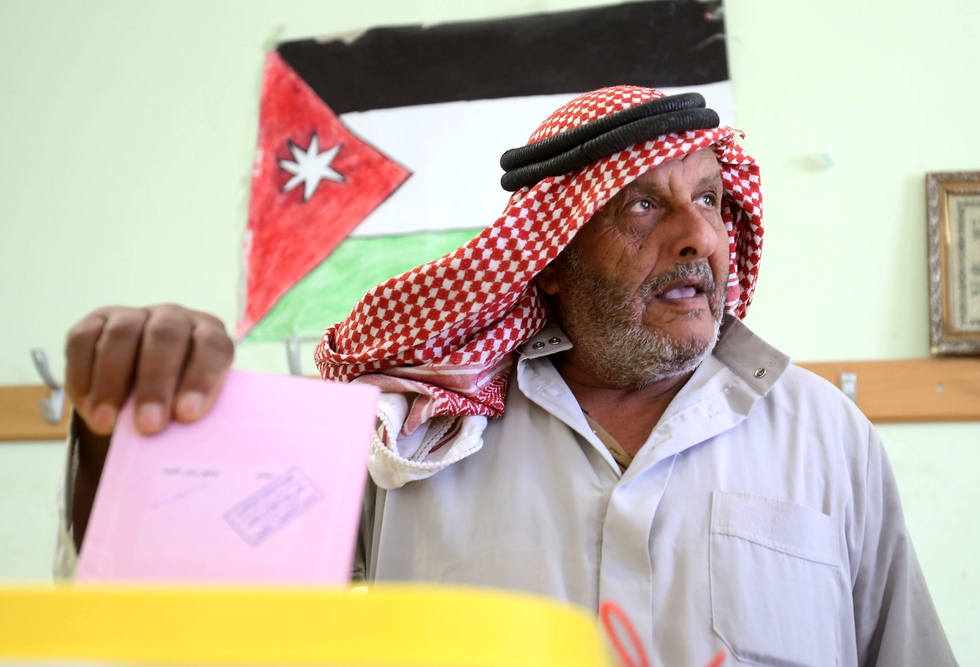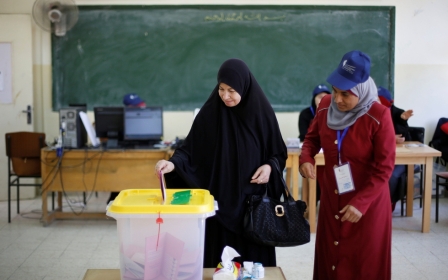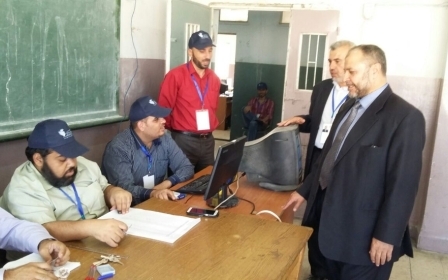Muslim Brotherhood wins quarter of Jordan votes but only 12 percent of MPs

Muslim Brotherhood candidates won nearly a quarter of all votes in Jordan's election, proving the group's political clout, but will gain just 15 of 130 seats in parliament, electoral commission results show.
The apparent disparity has prompted Ali Abu al-Sukkar, an electoral spokesman for the Brotherhood, to say the outcome of this Wednesday's election showed the "elections law is unfair and like nothing anywhere in the world”.
Nevertheless, senior Brotherhood leader, Zaki Bani Inshid, said that "although these elections were not free from some violations, they did constitute a step forward".
He described the winning of 15 seats as “a great accomplishment”, and pointed out that his movement's political wing, the Islamic Action Front party, would be the largest parliamentary bloc.
The Brotherhood contested its first election in eight years this week despite tense relations with the government, which transferred its licence to operate to a new group, the "Brotherhood Association", which split from the main group in 2014.
Jordan used a new quasi-proportional representation system in this week's elections, which forces candidates to align with parties and assigns seats based on the total percentage of votes in an attempt to foster party politics over tribal and familial concerns.
The new system was ostensibly designed to meet the demands of the Brotherhood, which boycotted elections for the past eight years in protest at the old system.
But according to independent electoral commission results, obtained by MEE, Brotherhood candidates won 24 percent of total votes but will be assigned only 12 percent of total seats.
None of the leftist or nationalist parties will be represented in parliament, and the overwhelming majority of remaining seats were won by businessmen and tribal representatives who ran under lists but held no real ideological affiliation.
A local news website in Jordan quoted Muhammad Ahmad al-Rusan, a member of the political bureau of the left-wing Jordanian Popular Movement as saying: “The lack of success on the part of the left pertains to the weakness of the left within Jordanian society.”
He said support from the government had not transformed into a boost in popularity.
The Brotherhood contested the elections in 15 of 23 constituencies. Voter turnout was 37.1 percent, and was lowest in the country’s two biggest cities, Amman and Zarqa. The electoral areas disproportionately favour rural over urban voters.
The election shows the Brotherhood still enjoys widespread popularity despite its recent absence from the political scene, a recent schism, and a campaign that has been waged against the group in Egypt, Saudi Arabia and the UAE, where it has been branded a "terrorist" organisation.
Until recently, it was thought that the group had split into three conflicting factions:
- The first is the Muslim Brotherhood, which lost its government licence but ran candidates under the IAF banner;
- The second was the licensed "Brotherhood Association" the result of the most recent schism in 2014.
- The third was the Zamzam current led by the former Brotherhood leader, Ruhayyil Gharaybah.
The licensed “Brotherhood Association” won a single seat in the coastal city of Aqaba, and Zamzam failed to win any seats - meaning the two factions still lack significant support on the Jordanian street and showing the effects of the schisms to be minor.
Ahmad Said Nawfal, a professor of politics at the University of Jordan, said the election had "proven that all the attempts to weaken the Brotherhood have been fruitless, despite the pressures put on it”.
"In the meantime, the other factions have failed. This is something that may prompt the state to ponder upon."
New MEE newsletter: Jerusalem Dispatch
Sign up to get the latest insights and analysis on Israel-Palestine, alongside Turkey Unpacked and other MEE newsletters
Middle East Eye delivers independent and unrivalled coverage and analysis of the Middle East, North Africa and beyond. To learn more about republishing this content and the associated fees, please fill out this form. More about MEE can be found here.



